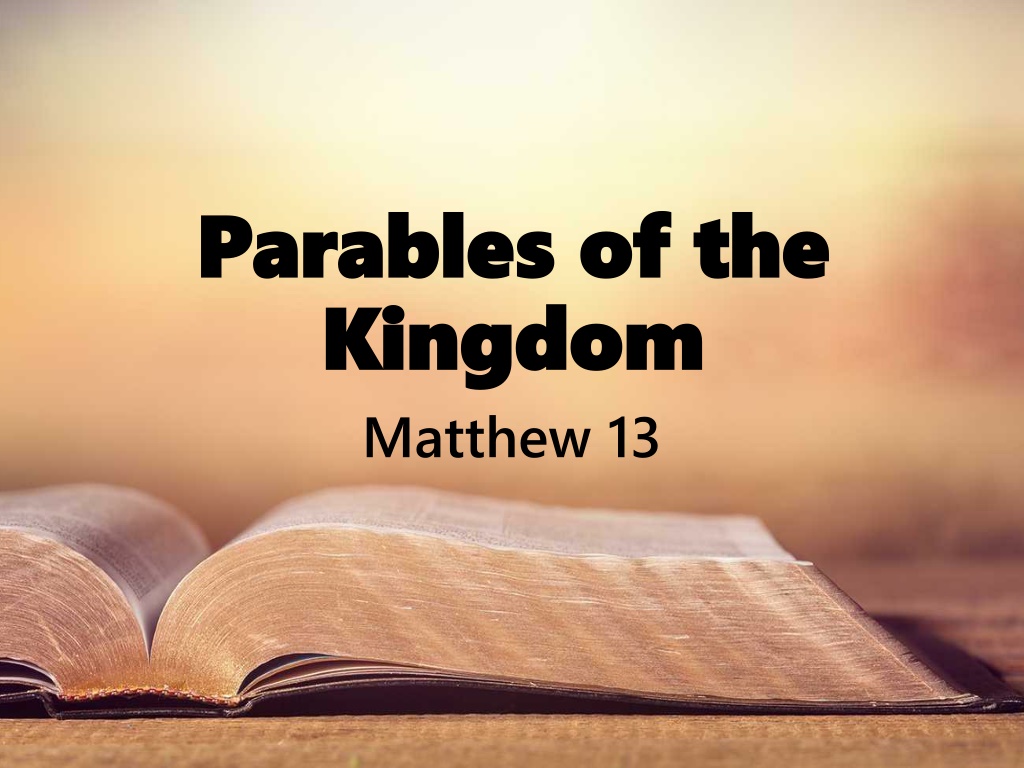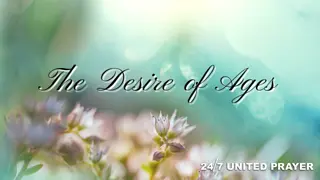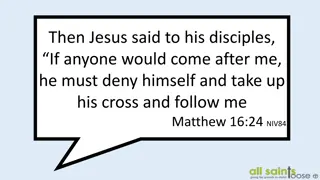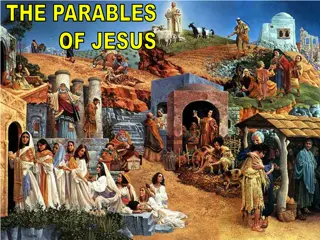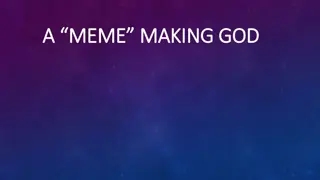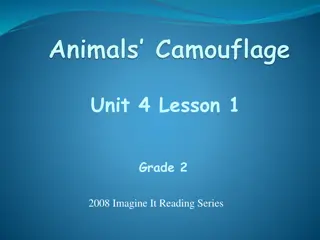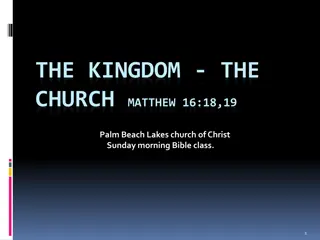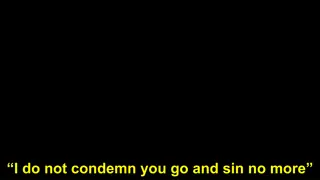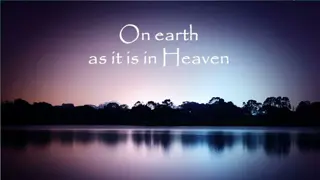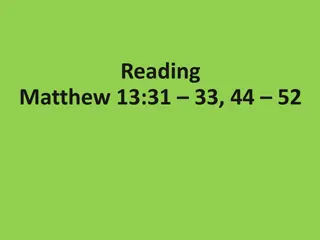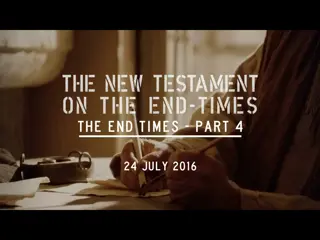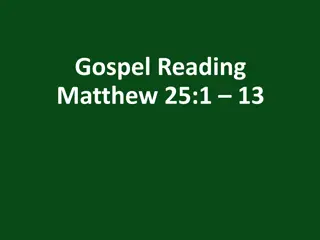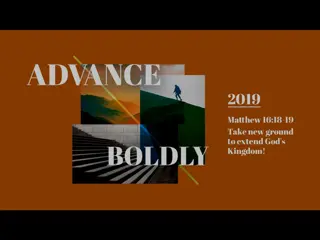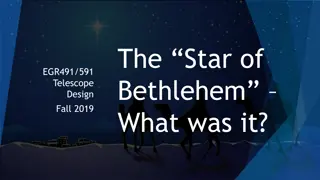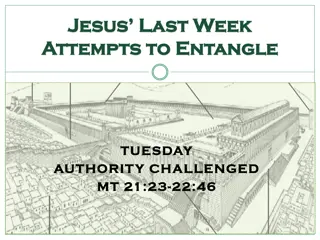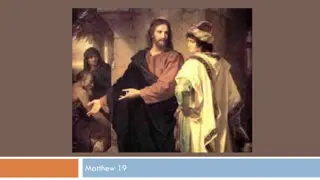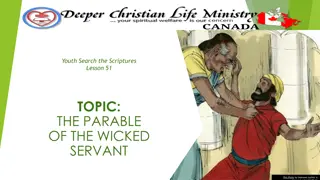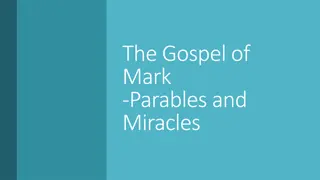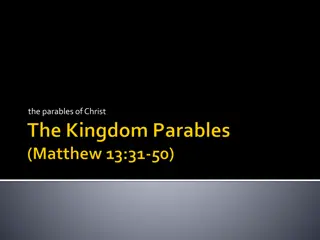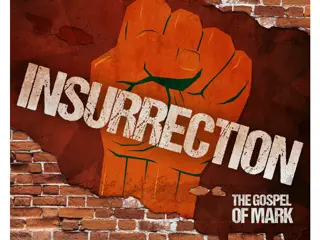The Parables of the Kingdom in Matthew 13
Explore the profound parables of the Kingdom in Matthew 13, including the Parable of the Tares and Wheat, Parable of the Mustard Seed, and Parable of the Leaven. Discover the deep meanings behind these teachings given by Jesus and their implications for the kingdom of heaven. Gain insights into the symbolism and explanations provided within these stories to understand the nature of the kingdom and its growth.
Download Presentation

Please find below an Image/Link to download the presentation.
The content on the website is provided AS IS for your information and personal use only. It may not be sold, licensed, or shared on other websites without obtaining consent from the author.If you encounter any issues during the download, it is possible that the publisher has removed the file from their server.
You are allowed to download the files provided on this website for personal or commercial use, subject to the condition that they are used lawfully. All files are the property of their respective owners.
The content on the website is provided AS IS for your information and personal use only. It may not be sold, licensed, or shared on other websites without obtaining consent from the author.
E N D
Presentation Transcript
Parables of the Parables of the Kingdom Kingdom Matthew 13
Parable of the Tares and Wheat Parable of the Tares and Wheat Jesus presented another parable to them, saying, The kingdom of heaven may be compared to a man who sowed good seed in his field. But while his men were sleeping, his enemy came and sowed tares among the wheat, and went away. But when the wheat sprouted and bore grain, then the tares became evident also. The slaves of the landowner came and said to him, 'Sir, did you not sow good seed in your field? How then does it have tares?' And he said to them, 'An enemy has done this!' The slaves said to him, 'Do you want us, then, to go and gather them up?' But he said, 'No; for while you are gathering up the tares, you may uproot the wheat with them. 'Allow both to grow together until the harvest; and in the time of the harvest I will say to the reapers, First gather up the tares and bind them in bundles to burn them up; but gather the wheat into my barn. (Matthew 13:24-30)
Parable of the Tares and Wheat Parable of the Tares and Wheat Explained Explained The sower of good seed is the Son of Man. (13:37) The field is the world. (13:38) The good seed are the people of the kingdom. (13:38) The bad seed are the people of the evil one. (13:38) The enemy is the devil. (13:39) The harvest is the end of the age. (13:39) The reapers are the angels. (13:39)
Parable of the Mustard Seed Parable of the Mustard Seed He presented another parable to them, saying, The kingdom of heaven is like a mustard seed, which a man took and sowed in his field; and this is smaller than all other seeds, but when it is full grown, it is larger than the garden plants and becomes a tree, so that the birds of the air come and nest in its branches. (Matthew 13:31-32)
Parable of the Mustard Seed Parable of the Mustard Seed Explained Explained Perhaps to encourage His disciples, and future readers, we have this parable. Until now only a quarter of the crop will be productive (parable of the Sower). Of those, some will be tares (parable of the tares) It could be a discouraging thought to the disciples of a martyred Savior and despised beginning. Jesus addresses the humble origin with an example in nature that grows from within as Christ is the seed. On the high mountain of Israel I will plant it, that it may bring forth boughs and bear fruit and become a stately cedar. And birds of every kind will nest under it; they will nest in the shade of its branches (Eze. 17:23)
Parable of the Leaven Parable of the Leaven He spoke another parable to them, The kingdom of heaven is like leaven, which a woman took and hid in three pecks of flour until it was all leavened. (Matthew 13:33)
Parable of the Leaven Parable of the Leaven Explained Explained This parable also addresses a humble origin of the kingdom. However, it deals with the aspect of its influence on the world around it. In other passages leaven has been described as a corrupting influence (1 Cor 5:7: Luke 12:1). Not so in this case. The woman took the leaven and put it into the 3 pecks (6 dry gallons) of flour. Much like what Jesus said the Pilot, My kingdom is not of this world John 18:36. This is a parable of final triumph of the kingdom. To those and us who need the assurance of final victory.
Parable of the Hidden Treasure Parable of the Hidden Treasure The kingdom of heaven is like a treasure hidden in the field, which a man found and hid again; and from joy over it he goes and sells all that he has and buys that field. (Matthew 13:44)
Parable of the Hidden Treasure Parable of the Hidden Treasure Explained Explained This parable speaks the individual value of the kingdom. Many a convert has, upon learning of the kingdom, been overjoyed. (John 4:28-29) It should be to us a reminder of our joy. Has there been anything that we have allowed to rob us of our joy in the kingdom of God?
Parable of the Costly Pearl Parable of the Costly Pearl Again, the kingdom of heaven is like a merchant seeking fine pearls, and upon finding one pearl of great value, he went and sold all that he had and bought it. (Matthew 13:45-46)
Parable of the Costly Pearl Parable of the Costly Pearl Explained Explained Again speaking to the individual but from another perspective. Previously we saw man finding the kingdom, now we see the kingdom finding man. This does not speak to any sort of prejudgment on our part. As though we determine the value of the pearl. Christ determined the value when He, emptied Himself, taking the form of a bond-servant, and being made in the likeness of men. Being found in appearance as a man, He humbled Himself by becoming obedient to the point of death, even death on a cross (Php. 2:7-8)
Parable of the Dragnet Parable of the Dragnet Again, the kingdom of heaven is like a dragnet cast into the sea, and gathering fish of every kind; and when it was filled, they drew it up on the beach; and they sat down and gathered the good fish into containers, but the bad they threw away. So it will be at the end of the age; the angels will come forth and take out the wicked from among the righteous, and will throw them into the furnace of fire; in that place there will be weeping and gnashing of teeth. (Matthew 13:47-50)
Parable of the Dragnet Parable of the Dragnet Explained Explained Christ explains that this parable has its view on eternal judgement. The net is the kingdom and encompasses all. In the kingdom there will be both righteous and wicked fish. Unlike the tares, the bad fish are not sown. The implication is that they chose freely to be wicked. Jesus is plainly saying that it s possible to be in the net/kingdom and be wicked. Now in a large house there are not only gold and silver vessels, but also vessels of wood and of earthenware, and some to honor and some to dishonor. Therefore, if anyone cleanses himself from these things, he will be a vessel for honor, sanctified, useful to the Master, prepared for every good work. (2 Tim. 2:20-21)
Our Take Away Our Take Away Tares,obstacles sown by the devil in the kingdom, God will sort them out. Mustard seed and leaven speak to the victorious might of the church. Hidden treasure, the value of the kingdom to the individual. Costly pearl, the value of the individual in the kingdom. Dragnet, there will be a sorting out of good and evil in the kingdom.
